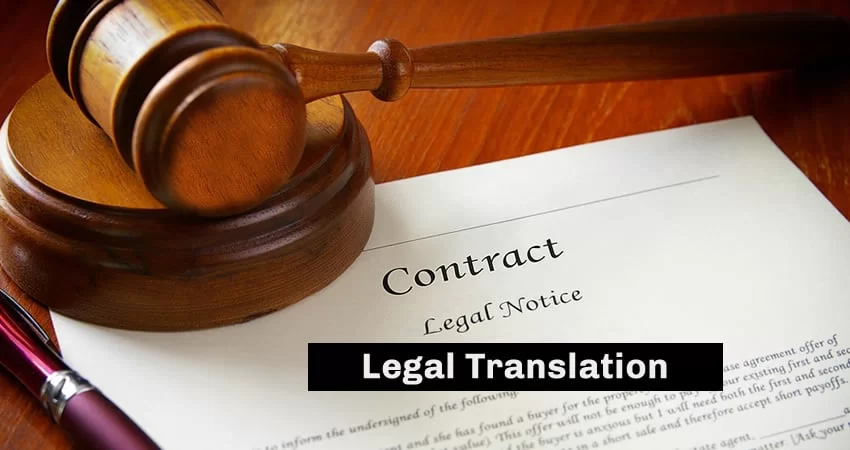Legal translation can be a daunting task. Not only does it require an in-depth knowledge of both language and law, but accuracy and precision are essential to ensure that the translated document reflects the original text. Understanding the basics of translation services, choosing the right type of translation, getting the most out of your translator, and benefitting from professional services are all key components in ensuring your document is accurately translated. This article will provide readers with all the necessary information they need to navigate legal translation services successfully, avoiding common pitfalls along the way. Through this article, readers will gain insight into how to get a clear picture when translating legal documents.
Understand the basics of legal translation
Legal Translation is a specialized field that requires an in-depth understanding of both the source language and target language, as well as familiarity with legal systems, cultures, and terminology. It differs from other forms of translation because accuracy and precision are essential to ensure that the translated document reflects the original text. Even the tiniest error can have serious implications.
At its core, Legal translation services involves interpreting documents such as contracts and court rulings from one language to another. As such, it is important for translators to remain impartial and unbiased when translating these documents. This means avoiding any interpretation of the text which could potentially be biased towards either party involved in a legal matter.
Accuracy is key when translating legal documents, which is why it’s important for translators to understand both the source language and target language thoroughly. For instance, they must be familiar with not only the syntax, grammar, and vocabulary of both languages but also cultural nuances related to both countries. Additionally, they should understand any differences between civil law (code law) and common law (case law), as well as be aware of any relevant legislation or codes applicable in each country.
Choose the right type of translation
When translating legal documents, it is crucial to select the right type of translation. Precision and accuracy are paramount for these projects, and readers should be familiar with the different options available. To start, they must ascertain what language pairs will need to be worked with. Depending on the document’s target audience and laws applicable in a particular area, it may be necessary to employ a certified translator who is proficient in both source and target languages. Additionally, readers should determine if their project requires sworn or notarized translations – which entail an extra layer of authentication for official documents like birth certificates or court transcripts.
Once language pairs are determined, readers can begin searching for qualified translators who specialize in their specific field – such as medical texts or legal briefs. It is also important to verify if the translator has any specialized accreditations from renowned organizations like ATA or IAPTI. Lastly, before selecting a translator readers should make sure they understand all relevant laws and regulations governing legal document translations in their jurisdiction; this will help them ensure accuracy while avoiding costly mistakes down the road.
Get the most out of your translator
Getting the most out of your translator is essential when translating legal documents. To ensure accuracy and precision, there are several steps one can take to make sure they get the best translation possible.
First, research the translator’s background and qualifications. It’s important to check that they have specialised accreditations for your field and understand both source and target languages proficiently. Furthermore, you should confirm that they have a good grasp of legal translation services, cultural specifics, differences between civil law and common law systems as well as applicable laws in each country.
Second, familiarise yourself with the translator’s process. Ask questions about their workflow such as which software do they use or how long it will take them to complete a job? Knowing these details in advance allows you to plan better and be realistic about how quickly the project can be finished up.
Third, establish effective communication with your translator throughout the entire process. Make sure all instructions are provided from day one so there is no room for misunderstandings later on down the line. Additionally, be open-minded towards feedback from your translator; they may give you useful insights regarding certain aspects of a document or suggest different ways an idea could be articulated in another language more successfully.
Fourth, provide all relevant materials to your translator for them to create an accurate translation including glossaries or style guides explaining terms unique for your sector as well as reference documents or links to online resources that can help inform their work or offer context around particular topics discussed in the document.
Know the benefits of professional Legal translation services
Legal Translation services can be a highly complex process, requiring accuracy and precision. Engaging professional translation services for legal documents has its advantages. Professional translators possess the expertise and cultural awareness to provide accurate translations that adhere to legal standards. This is especially important when translating contracts, as any misinterpretation or errors in the text could have serious consequences.
Professional legal translation also offer flexibility when it comes to meeting tight deadlines on projects such as global filing of a patent application or registration under a new law. They can also provide peace of mind that sensitive documents are secure and protected against potential data breaches or cyber threats.
Avoid common pitfalls in legal translation services
Legal translation services is a complex process and can be difficult to navigate without the help of experienced professionals. To ensure accuracy and precision, it is essential to hire a translator who is knowledgeable and experienced in the legal field. It is also important to be aware of potential pitfalls that may arise in the translation process.
One common pitfall when translating legal documents is failing to take into account cultural differences between languages. It is essential that translators understand not only the source language but also the target language thoroughly, as some expressions may not be understood or accepted in other countries. Translators must also be impartial and unbiased, understanding both sides of any argument or issue before providing an accurate translation.
Another common pitfall with legal document translations is failing to do multiple rounds of proofreading before submitting the document for review. This step should never be overlooked, as small errors can lead to major misunderstandings if left unaddressed. Similarly, all documents should be carefully reviewed for any inconsistencies or omissions prior to submission – this can help avoid costly mistakes down the line.
Final Thought
Legal translation is a complex process that requires accuracy and precision. Professional translators offer businesses the expertise needed to ensure translation of legal documents meets all relevant standards, while adhering to deadlines and providing peace of mind when it comes to data security. When selecting a translator, research their background thoroughly before engaging their services, communicate effectively throughout the entire process, provide them with any necessary materials, collaborate on feedback for their work product, and understand applicable laws governing translations in your jurisdiction before submission.
It should be noted that there are potential pitfalls when translating legal documents – such as cultural nuances between languages or lack of multiple rounds of proofreading. To avoid these issues from occurring readers should take precautionary measures by being aware of these potential problems and how to address them if they arise. By taking proactive steps upfront readers can ensure accurate results when translating legal documents while avoiding common errors along the way.



